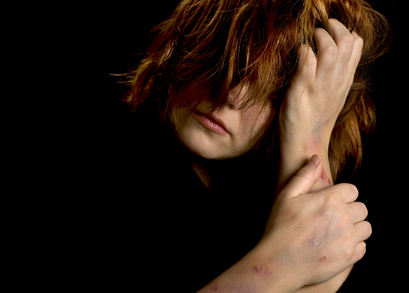Mental health guidance for the victims of violence
By Liz Lockhart
The victims of violence often suffer in silence, hiding the mental distress which  acts of violence and abuse can cause. Violence can inflict much more than bruises, cuts and broken bones, all too often the scars of abuse are felt in the form or mental illness.
acts of violence and abuse can cause. Violence can inflict much more than bruises, cuts and broken bones, all too often the scars of abuse are felt in the form or mental illness.
New guidelines have been drawn up by the Royal College of Psychiatrists (RCP) to improve mental health outcomes for the victims of violence. All too often the mental health needs of the victims of violence are unrecognised with disjointed services to support their needs, according the RCP.
The services which are required to help the victims of domestic violence are relatively underdeveloped despite the risk of mental health problems. These problems include post-traumatic stress disorder, anxiety, depression and substance misuse problems and they can affect not only victims of domestic violence but any form of physical violence which includes sexual violence.
Today (11.07.12) the Royal College of Psychiatrists has published new guidance to improve the mental health outcomes for people affected by violence. The guidance is called ‘Managing the Impact of Violence on Mental Health’ and includes guidelines for witnesses and those affected by homicide. It has been developed in conjunction with the Royal College of General Practitioners, the College of Emergency Medicine and the national charity Victim Support.
‘Having treated people injured by violence for many years, I’m convinced that the mental health problems that are inflicted are often more serious and long-lasting than their physical injuries. About 300,000 victims of violence are treated in emergency departments in England and Wales each year and about 40% of these will go on to have mental health problems. But although the mental health impacts of violence are common, they are also often neglected. We hope this guidance will help make sure that people who are victims or violence get the help they need,’ said Professor Jonathan Shepherd, Professor of Oral and Maxillofacial Surgery and co-author of the new statement.
The new guidance suggests that it is necessary to create a new stepped care pathway to enable emergency departments, GPs and the criminal justice system to work better together to identify those people who show signs of mental ill health and to provide them with information on how to access relevant support services.
The recommendations are:
- Health professionals who treat those affected by violence and the health services in which they work should be recognised as major advocates for victim health and wellbeing.
- Doctors working in emergency settings should refer patients with signs of mental health problems as a result of violence to third sector support services or to the patient's GP, depending on the severity.
- Victim support and other competent statutory and third-sector personnel should refer victims and others affected by violence who demonstrate signs of mental ill health to primary care health professionals for further assessment.
Victim Support has been helping victims deal with the emotional and psychological effects of all kinds of crime for nearly 40 years. Javed Khan, Chief Executive of Victim Support said ‘We are keenly aware of the psychological impact that being a victim of violent crime can have. Victim Support has systems to identify and refer victims to mental health services, where it is needed. However, greater collaboration between all the agencies and individuals involved to ensure that more victims with trauma-related and mental health conditions are identified and appropriately referred would benefit all involved, not least victims. We look forward to working with the Royal College of Psychiatrists and other parties to ensure more victims get the help they need.’





